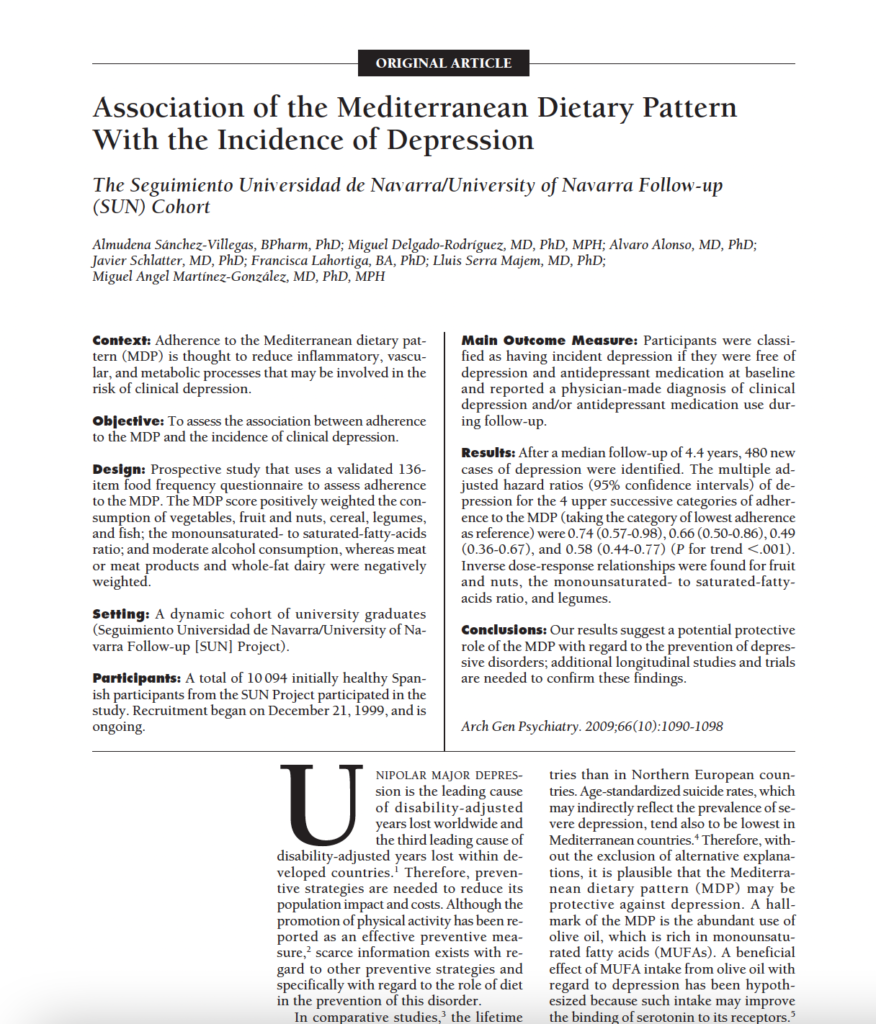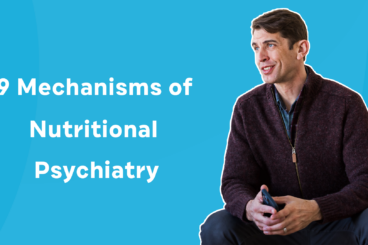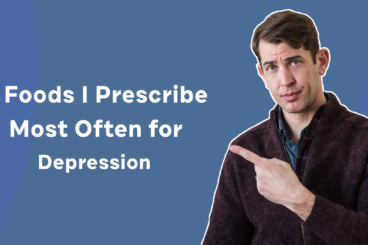Can food and nutrition be used to prevent college depression? This is such an important public health question so I wanted to review some of the important data. College students, parents, administrators, universities, and high schools all are increasingly concerned about mental health and need important evidence based tools like nutrition to help stem the tide of the huge mental health epidemic that we see. So let’s look at some of the data.

This first study is a classic in nutritional psychiatry. It was one of the first research studies ever completed. It was published in 2009. The researchers followed over 10,000 university students for four and a half years and they looked at the correlation between their dietary pattern, how closely they adhered to a Mediterranean style diet and whether they got depressed or not. It was quite striking. In fact, I’d even say the results were staggering over four and a half years. Individuals who adhered most closely to the Mediterranean diet saw a reduction in the risk of getting depressed, a risk reduction between 25 and 50%. That is huge. Now of course we always say in medicine that correlational studies like this don’t equal causation, meaning we can’t simply say, “wow, if we change the diet of every university student, we’re going to reduce this much depression.” However, this helps us test hypotheses and it was exciting then, to see a randomized controlled trial to follow this data and test the theory can nutrition be used to prevent and treat college depression.
This study was completed in Australia, by Heather Francis and her team. They looked at college freshmen who were in a psychology class and had poor eating habits. They measured their depressive symptoms and then did a very simple and straightforward intervention. They gave these college freshmen a box of food that had some nut butters, nuts, some spices such as cinnamon and turmeric and then olive oil. They also received a 13 minute video encouraging them to eat a more Mediterranean style diet, which meant to eat more plants and to use the foods that were in their food box, along with some recipes and commonly asked questions. A week later, they got a five minute phone call encouraging them to keep adhering to the diet, troubleshooting any problems and asking them how it was going. The next week they got a second five minute phone call. What were the results? Well, I’ll show them to you right here. In just three weeks there was a significant reduction in depressive symptoms in those college freshmen. Their moods improved. Also, the researchers found there was a reduction in anxiety and stress on formal rating scales.
These two pieces of research put together really show us by improving nutrition in young adults, we could stem the tide of the mental health epidemic that we are seeing. I think most importantly, we need to give people more tools. We don’t all need to wait until we’re clinically depressed to engage with our mental health and work to improve our mental fitness. These research studies show us that there is some hope now that nutrition can be used as an effective tool. Of course, all of us in mental health know this isn’t a silver bullet. It’s not the only thing we need to do to take care of our mental health, but evidence like this is quite compelling that we’re learning a lot about how we can feed our mental health.



